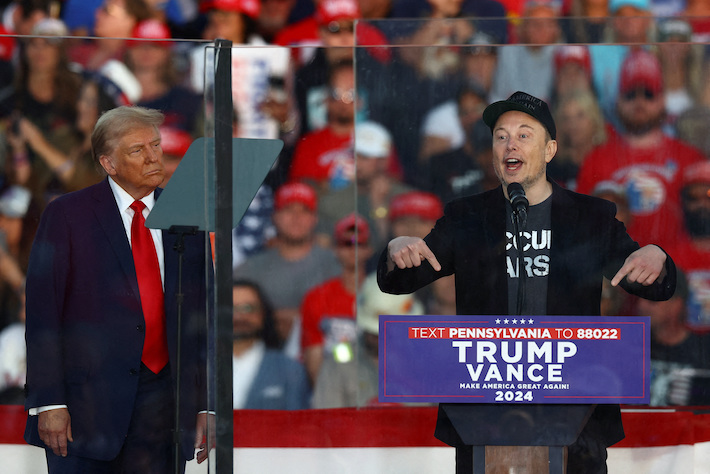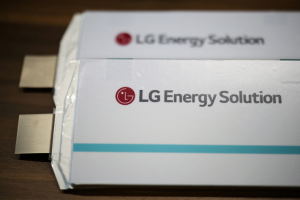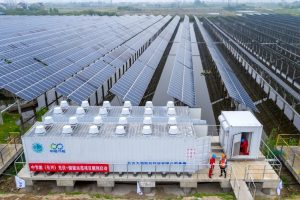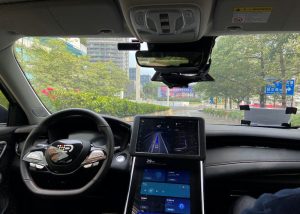US president-elect Donald Trump’s plan to kill electric vehicle tax credits worth $7,500 could end up benefitting China, American automakers and officials have warned.
Trump first indicated he might kill the EV subsidy while on his campaign trail in August, and Reuters reported last week that his transition team was aiming to repeal the credits, with support from the future US president’s key aide, Elon Musk.
But that plan is making American electric vehicle and battery manufacturers nervous.
Also on AF: COP29: What Will Donald Trump Mean For Global Carbon Markets?
Tax credits are critical for the United States to “actually compete to win against China,” warned Albert Gore, executive director of the Zero Emission Transportation Association (ZETA).
ZETA represents major electric vehicle and battery manufacturers, including Rivian, LG, Tesla, Uber, Lucid and Panasonic.
Most of those firms, and their global counterparts, saw shares tank through the week on reports of Trump killing the tax credit. Rivian shares ended the week down nearly 6%, while LG was down more than 4%, Tesla was down more than 7%, and Lucid was down a massive 11% in the period.
ZETA’s statement came just hours after a similar warning from outgoing US Energy Secretary Jennifer Granholm at climate summit COP29.
“It would be so counterproductive,” Granholm told reporters in Baku, Azerbaijan referring to Trump’s plan to end the credits.
“You eliminate these credits, and what do you do? You end up ceding the territory to other countries, particularly China,” she said.
The tax credit rules were aimed at lowering the US’ reliance on China’s supply chains. Biden’s Inflation Reduction Act (IRA), further underscored that goal by cutting off from those credits for vehicles that were either made in China or used components and raw materials generated in China.
Mike Murphy, a longtime Republican strategist who runs the EV Politics Project – an advocacy group seeking bipartisan EV support – said ending the subsidy was a “really bad for American automakers” trying to catch up to highly subsidised Chinese EV industry.
“The Trump administration is proving they have absolutely no interest in helping the US auto industry survive the coming Chinese invasion,” he told Reuters.
Mixed signals
Trump’s stance on China has been mixed, going by his campaign speeches. On the one hand, he has promised a hardline approach on Beijing — promising to impose tariffs as high as 60% on imports from the US’ top economic rival.
On the other hand, he has vowed to end Biden’s “EV mandate”, including by inviting Chinese carmakers to build plants in the US.
Ending tax credits is also part of that move.
In October, the Alliance for Automotive Innovation urged Congress to retain the EV tax credits, calling them “critical to cementing the US as a global leader” in future auto manufacturing.
That’s partly because global EV-makers have, over the past two years, rushed to bump up their investments in the US, in an effort to qualify for tax credits.
ZETA warned in its statement that killing EV tax credits would undercut those investments and hurt American job growth.
Killing the credits would also hurt the American EV industry at a time when demand for electric cars has slowed down due to high purchase costs.
According to Bank of America, higher costs would mean that the US will not see widespread EV adoption at least until 2028.
That would mean the US will also fall back on its climate goals — though it remans to be seen whether they will survive Trump, who believes climate change is a hoax, even with 2024 on track to being the hottest year on record for the world.
- Vishakha Saxena, with Reuters






















